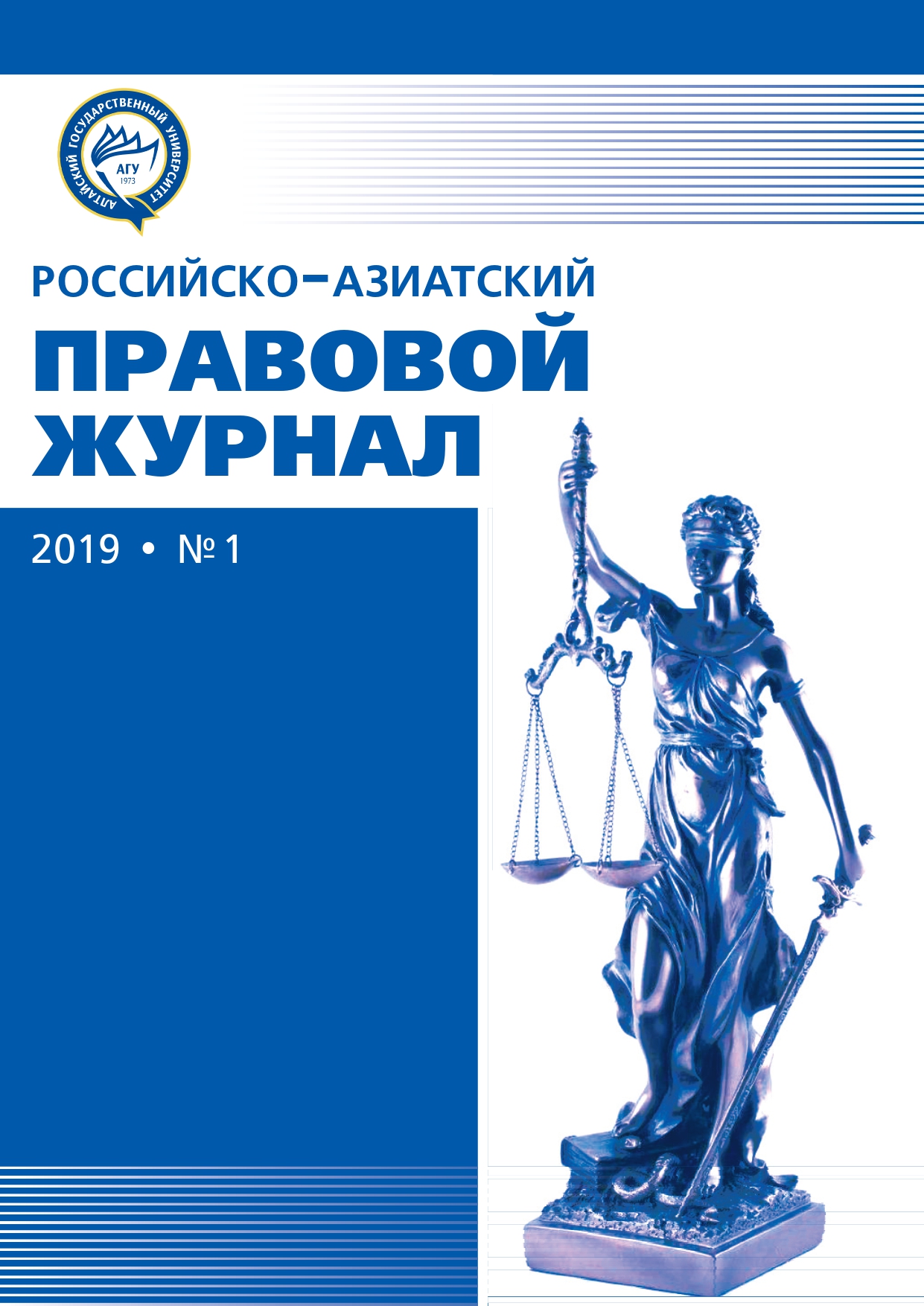PHILOSOPHICAL PROBLEMS OF LEGAL SLAVISTICS AND PROSPECTS OF SLAVIC UNITY IN THE XXI CENTURY
УДК 340 ББК 67.0
Abstract
The article analyzes the philosophical problems of legal Slavistics related to the formation of theupdated pan-Slavic state-legal ideology aimed at Confederate and Federal forms of Slavic Association.The author consistently explores the conceptual, civilizational and geopolitical obstacles of Slavic unity.However, in the presented work and suggests some ways to overcome the anti-Slav political and legal dogmasthrough education aimed at the formation among the Slavs pan-Slavic doctrine of the primacy of the Slaviccommunity-the tribal system, founded on the principles of archaic socialism (mutual responsibility andmutual support); Board Assembly; the freedom-loving nature, the rejection of all forms of slavery; linguisticaffinity; organic unity of personal and community interests, with unconditional recognition of the primacy ofthe sovereign values of the private; as well as the supremacy of spiritual and moral principles over materialneeds. In practical terms, we propose a legal project for the development of the Union state of the Republicof Belarus and the Russian Federation.
Downloads
References
С. 173–175.
Серегин А.В. Теоретические основы юридической славистики // Юридическая техника. 2015.
№9. С. 692–698.
Серегин А.В. О необходимости возрождения юридической славистики в современной Российской Федерации // Вестник юридического факультета Южного федерального университета. 2015. №1 (3). С. 61–65.
Серегин А.В. Эволюция древнеславянского права (эпоха Средневековья: от общинно вечевых истоков к крепостничеству) : монография. М., 2018. 324 с.
Ермолович В.И., Шарпов Р.В. Процесс эволюции реальных договоров в римском частном праве и законодательстве Великого княжества Литовского, Русского, Жамайтского // Вестник юридического факультета Южного федерального университета. 2017. Т. 4. №3 (13). С. 15–27.
Николич Драган. Сравнительная история права славянских народов (юридико-историческое эссе) // Вестник юридического факультета Южного федерального университета. Т. 4, №4 (14). 2017. С. 68–71.
Ђорђевић А. Историjасловенских права: државна власт и суд / Александар В. Ђорђевић. Ниш, 2018. 140 с.
Иванников И.А. История философии права : монография. М., 2014. 290 с
Леонтьев К.Н. Византизм и Славянство // Восток, Россия и Славянство: философия и политическая публицистика. Духовная проза (1872–1891 гг.). М., 1996. 798 с.
Бакунин М.А. Основы новой славянской политики. // Собрание сочинений и писем. 1828– 1876 гг. Т. 3. М., 1934. 502 с.
Договор о создании Союзного государства от 8 декабря 1999 г. // Российская газета. 2000. 29 янв. С. 6.
Серегин А.В. Державное наследие Древней Руси: опыт юридического исследования от Скифии до пресечения династии Рюриковичей : монография. М., 2017. 344 с.
Russian-Asian Law Journal is a golden publisher, as we allow self-archiving, but most importantly we are fully transparent about your rights.
Authors may present and discuss their findings ahead of publication: at scientific conferences, on preprint servers, in public databases, and in blogs, wikis, tweets, and other informal communication channels.
Russian-Asian Law Journal allows authors to deposit manuscripts (currently under review or those for intended submission) in non-commercial, pre-print servers such as ArXiv.
Authors who publish with this journal agree to the following terms:
- Authors retain copyright and grant the journal right of first publication with the work simultaneously licensed under a Creative Commons Attribution License that allows others to share the work with an acknowledgement of the work's authorship and initial publication in this journal.
- Authors are able to enter into separate, additional contractual arrangements for the non-exclusive distribution of the journal's published version of the work (e.g., post it to an institutional repository or publish it in a book), with an acknowledgement of its initial publication in this journal.
- Authors are permitted and encouraged to post their work online (e.g., in institutional repositories or on their website) prior to and during the submission process, as it can lead to productive exchanges, as well as earlier and greater citation of published work (See The Effect of Open Access).








